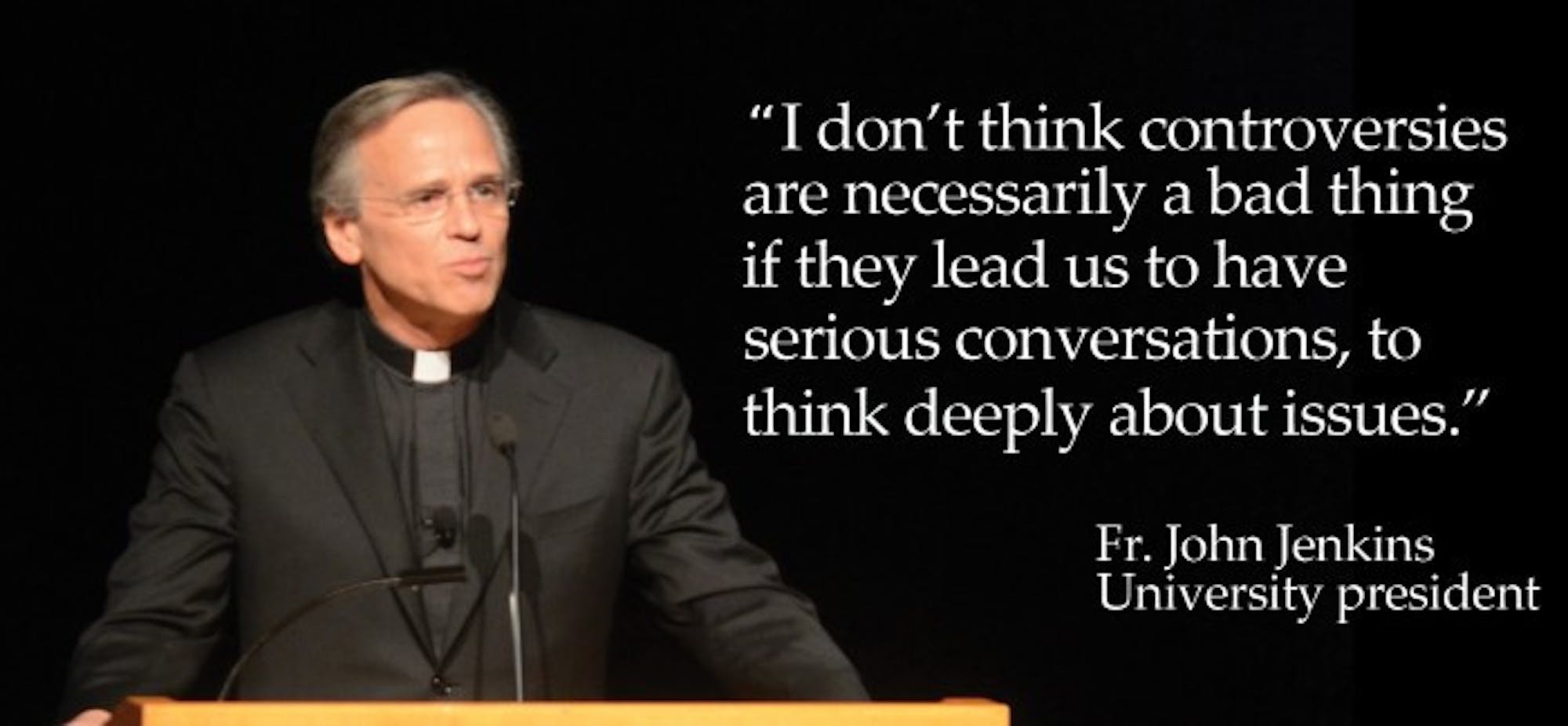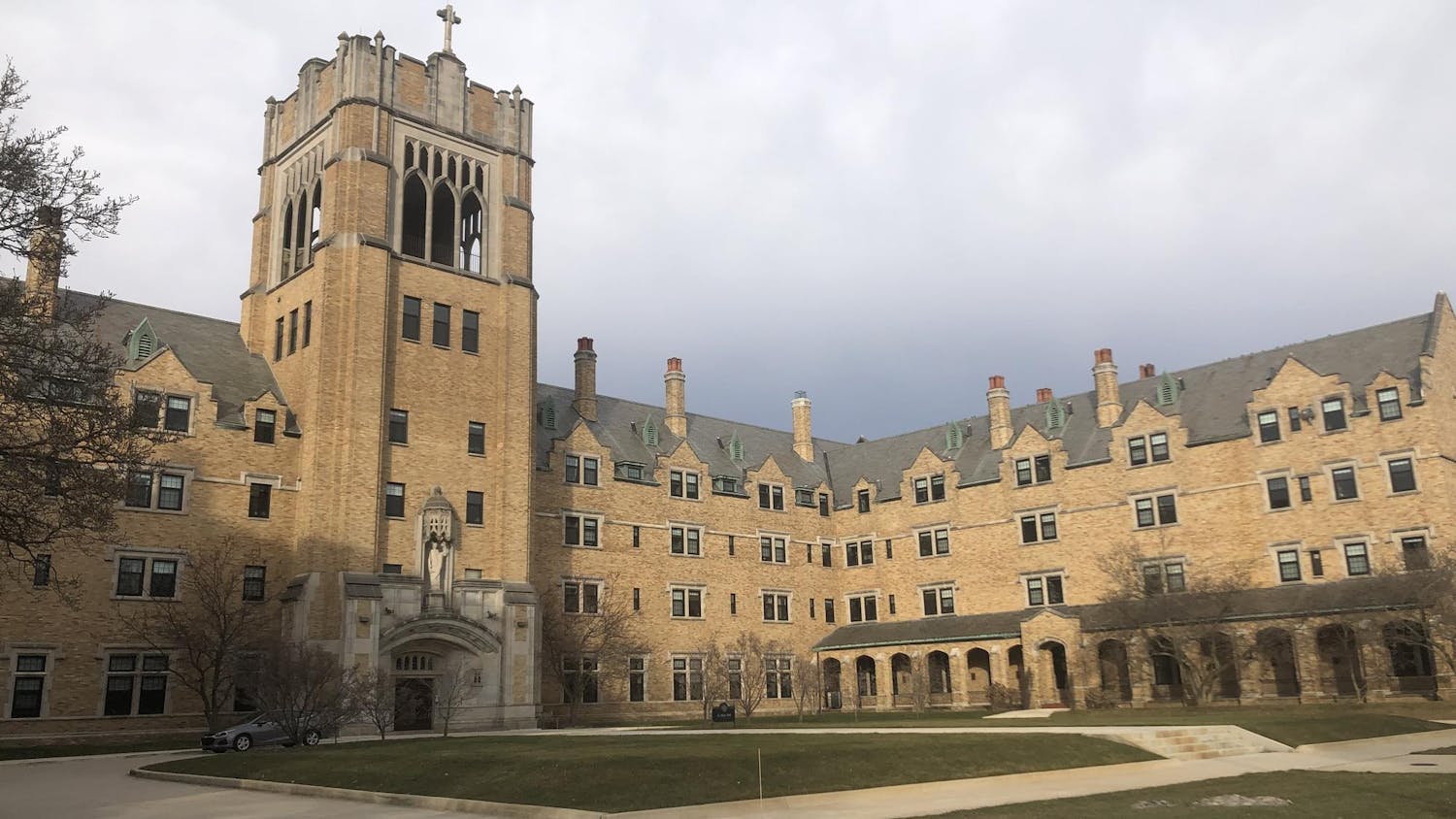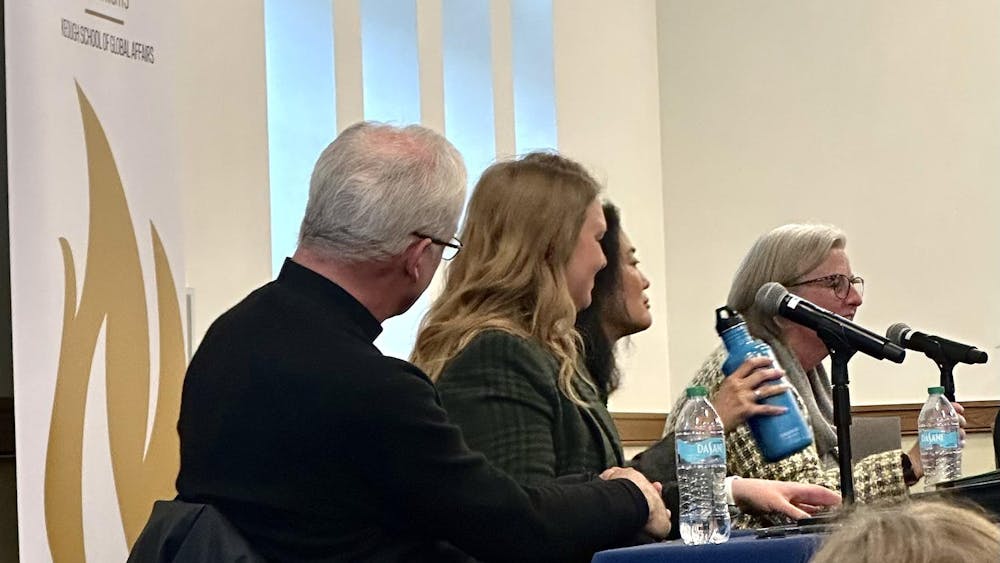University President Fr. John Jenkins defended his decision to award the Laetare Medal to Vice President Joe Biden and former Speaker of the House John Boehner in an interview with the Observer on Tuesday, his first comments since the University announced this year’s recipients in a press release on March 5.
The decision sparked a controversy — on campus and on a national scale — and has received both criticism and support from various members of the Notre Dame community.
“I don’t think controversies are necessarily a bad thing if they lead us to have serious conversations, to think deeply about issues,” Jenkins said in the interview.
The Laetare Medal is awarded to an American Catholic at Notre Dame’s Commencement each year in recognition of outstanding service to the Church and society. The award honors Catholics in all different fields; recent recipients include singer Aaron Neville, biologist Kenneth Miller and poet Dana Gloria.
The decision to honor two Catholic politicians was not a timely one in light of the upcoming election, Jenkins said, but instead meant to recognize Biden and Boehner’s many years of service to the country as their political careers begin to wind down.
“We’re not endorsing the active politicians who are going to have a campaign,” he said. “But I thought it was an opportunity to recognize people who had risen to the very highest level of political leadership. For their dedication to public service, their willingness to work with others for the common good, we recognize them with the Laetare.”
Jenkins said the decision to award the medal to two members of different political parties was to avoid any perception of the University endorsing one or the other.
“I said before, and I’ll say it again, this award does not endorse the particular positions of either person,” he said. “… I think it’s significant these two men, despite being of different parties disagreeing on so much, became and remain friends.”
The decision was meant to address the division and animosity present in today’s political environment, Jenkins said.
“I do want, with this award, to fight against the tendency that those who disagree with us are necessarily evil or worthy only of our disdain,” he said. “We can disagree — and even disagree on significant moral issues — and still find laudable qualities in those with whom we disagree.”
Each year, a committee provides recommendations to Jenkins, who is free, but not required, to select an honoree from the list of suggestions. Biden and Boehner were not on this year’s list of proposed recipients, but Jenkins chose to award the medal to the two individuals after discussing the matter with the committee, he said.
In response to Jenkins’ decision, Bishop Kevin Rhoades, of the Fort Wayne-South Bend diocese, released a statement condemning the University’s choice due to Biden’s stances on abortion and same-sex marriage. Rhoades said he is concerned honoring Biden and Boehner will provoke “scandal,” as defined in the Catholic sense.
“That is a somewhat technical word in Catholic thought that means that the action creates the impression that we’re sanctioning or encouraging immoral or unjust actions,” Jenkins said. “I have the greatest respect for the bishop and want to respond by explaining our intentions, in the hope that I can counter any misperceptions leading to scandal.”
Multiple groups have written letters to the editor in the Observer’s Viewpoint section voicing their dissent. More than 2,700 individuals — many Notre Dame alumni — have signed a petition professing their agreement with the bishop, urging the University to reconsider the decision.
Jenkins said he wants to articulate the meaning of the award and his reasons for choosing it, a lesson he learned when the University invited Obama to speak at Notre Dame’s 2009 Commencement.
“What I’ve tried to do, and will try to do, is just explain clearly what we’re doing,” he said. “People can disagree; I don’t think that’s necessarily a bad thing, as long as it leaves to substantive, constructive discussion and not just acrimony.”
A majority of the criticism is directed at Biden, which Jenkins said he is afraid reflects a one-sided partisan approach.
“I’m certainly not saying that I support all the Vice President’s positions,” he said. “But I do find, in the record, that he took account of his Catholic faith, even while trying to make decisions on legislation — that’s often complex in a nation on issues on which the nation is deeply divided.”
Ultimately, Jenkins said he thinks a public servant can exemplify what it means to be a Catholic leader, regardless of his or her political affiliation.
“I think it’s important to evaluate, to take account both of that range of [Catholic] teachings and take account of the complex realities of our nation that is so deeply divided on these issues,” he said.
Jenkins defends Laetare Medal decision
Olivia Mikkelsen
Olivia Mikkelsen









